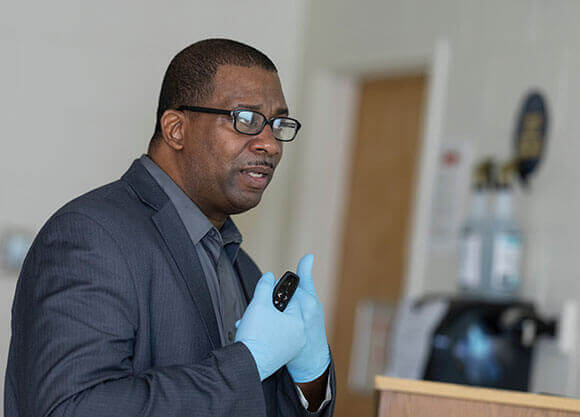
From police officer to professor
February 25, 2021

February 25, 2021

As an urban ethnographer, someone who studies life and culture in urban areas, Turè wanted more than just a window seat to the criminal justice system. He wanted to learn about policing from a position of power.
“If I really wanted to study policing and its relationship to crime and place, I really needed to experience it,” Turè said. “I grew up in Newark, New Jersey, a city that’s known for crime— violent crime, deep structural inequality. A lot of marginal citizens locate themselves in urban areas and become disproportionately affected by policing.”
When those social fissures become violent gashes and spread across the nation, the result is the racial reckoning America experienced last summer, Turè explained.
Based on his experience as a police officer and years of research as an academic—Turè earned his PhD from American University—it became clear to him that social change can only happen with social engagement across all groups.
“People have to come together. They need to understand each other and respect each other,” Turè said. “But you can’t expect that to happen in a hyper-racialized and bifurcated society. When you have the police shootings we’ve had in this country— and not just the high-profile ones you see on TV—we have to own it. It’s everyone’s problem.”
Turè sees Quinnipiac as a transformative place for racial healing. He said the university’s new policies are an important first step to achieving equity and inclusion on campus—and beyond.
“We need to atone. We need to stop hiding from our sins and start leading the change,” he said. “Quinnipiac is our citadel on the hill—not just for our students, but for the Greater New Haven community. We can scale down law enforcement in America if we scale up our citadels.”
Quinnipiac Today is your source for what's happening throughout #BobcatNation. Sign up for our weekly email newsletter to be among the first to know about news, events and members of our Bobcat family who are making a positive difference in our world.
Sign Up Now